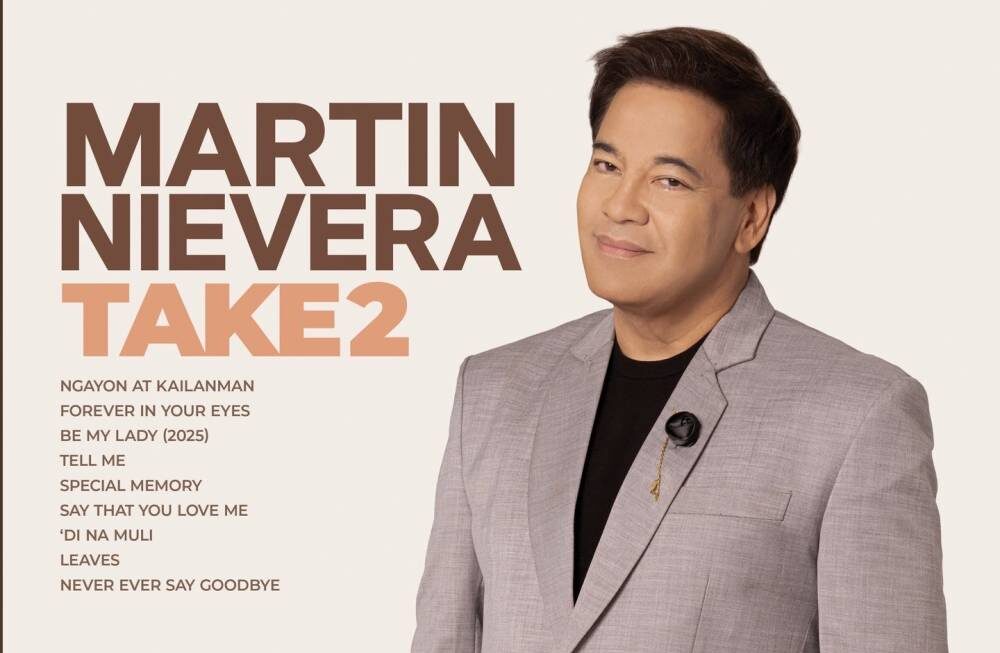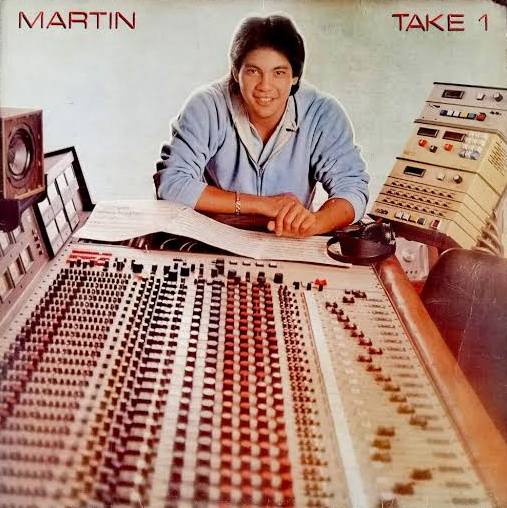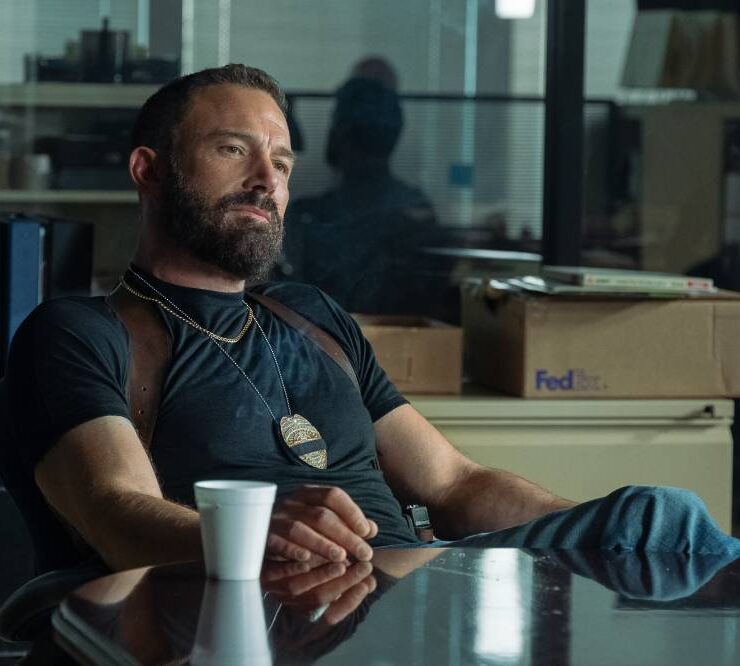Fame is gone before you know it. Take it from Martin Nievera

Back in the days of analog recording—when messing up meant repeatedly redoing a section or even the entire song—nailing it in one go was a little badge of honor singers wore. It meant you were “really good—the real deal,” Martin Nievera says. And for producers, fewer takes meant less tape, less studio time, and less money spent on musicians and engineers.
All that to say, none of the tracks on his 1982 debut album, “Martin…Take 1” were done in one take.
The song “Pain,” for instance, was exactly that—a real pain to record. “The overdubs took me about seven hours to finish, because I couldn’t, for the life of me, sing against the beat and get the syncopations right,” Nievera recalls in a chat with Lifestyle Inquirer. “I was soaking in sweat the entire time.”
Recording was a tedious, vocally taxing process—and even then, there was still no guarantee that the final product would be perfect. This was the early ‘80s, after all. Fixes existed, sure, but they were often done manually, time-consuming, and at times, even risky. No instant pitch correction, no unlimited comping.
In fact, revisiting “Take 1”—which also birthed one of his signature ballads, “Be My Lady”—Nievera couldn’t help but pick out all the imperfections in his singing. “I had a lot of flats and sharps,” he admits. “But that was an era when those were seen as real and okay. Today, some of those notes wouldn’t fly.”
“Now, everything is digital,” he points out. “Sometimes, you don’t even have to sing the entire chorus anymore—copy, paste, auto-tune, and you’re done.”

Back to vinyl
Nievera, 63, isn’t just being a cranky old head; he also enjoys the benefits of modern conveniences in the studio as much as anyone else. But with music these days moving at a relentless pace and recordings sounding much too clean, perhaps it’s only natural to yearn for the slowness and deliberateness of how things used to be done, or for that human touch that digital precision can’t quite recreate.
That’s why, for “Take 2,” a recently released greatest hits compilation inspired by “Take 1,” Nievera and Vicor Records decided to go the vinyl route exclusively.
While this might be seen as putting himself at a disadvantage—at least streaming-wise—by not making the album available on digital platforms, Nievera is at a stage in his career where he no longer has to chase numbers. He has more than enough to back his name: more than 40 years in showbiz, over 30 studio albums, multiple platinum and gold certifications, and iconic hits that will still be played long after he stops singing.
“Take 2” is more of a collectible, a “nostalgic keepsake” as he puts it. Here, Nievera breathes new life—by way of fresh arrangements from Marvin Querido—to his classics: “Ngayon at Kailanman,” “Tell Me,” “Special Memory,” “Say that You Love,” and “Never Ever Say Goodbye.” “Be My Lady” even gets a second key change, as if having one wasn’t already difficult enough to sing live, he jokes. He also covers modern pop hits like ‘Di Na Muli” by Wally Acolola and Jazz Nicolas, and “Leaves” by Ben&Ben here.
“Some older fans still look for that scratch—that needle to vinyl magic,” says Nievera, who has also noticed the medium’s growing popularity among young people and aspiring collectors. “Some of them even invest in fancy sound systems that they themselves assemble. I can’t blame them. There’s something about the sound that’s tough to explain—it just hooks you.”
Face-to-face connections
Though thrilled about the resurgence of vinyl, Nievera also hopes for the return of other more tangible or interactive aspects that come with album releases, like extensive autograph signing sessions. These are still done as part of usual promotional activities, but they have become increasingly rare, mainly because, well, there aren’t many physical albums to sign anymore.
“Some artists dislike doing these and want to get things over within 30 minutes. But I can do it the whole day,” he says. “I sign everything—albums, napkins, menus… whatever.”
There was even a time when Nievera used to carry signed albums—first cassette tapes, then CDs—just so he had something to give to fans he happened to meet. “Whenever I flew back then, I would try to find out how many people were on the plane with me, so I could have enough CDs,” he says. And when he didn’t have any with him, he bought blank CDs and burned songs onto them. “It’s piracy only when you sell them; otherwise, they’re gifts!” he jokes.
Perhaps more than the feel and sound of vinyl, it’s those moments from the early days that he really misses. Because it’s in those events where genuine connections with fans are formed—face-to-face, one-on-one.
“I ask them, ‘Why are you still here waiting for an autograph? What did I do right?’” says the seasoned balladeer, who makes sure to treat every fan equally—whether they buy the most albums or just one, whether they get front-row concert tickets or sit all the way in the back.
“These are people who save money just to get the cheapest tickets, just so they can catch a glimpse of you. Mind you, big screens were rare and sound systems weren’t very good back then,” he says. “It’s those people who got you [to] where you are now.”
No longer ‘that guy’
As such, Nievera can’t help but get frustrated when he sees young artists taking success and fan support for granted. Fame is fickle and fleeting, even more so now, with the industry saturated and people quick to move on to the next new face. Again, another case for taking things slow, he says.
“One time, there was this artist with a crowd of fans waiting for him on the streets, banners and all. He gave them nothing more than a curt wave, so I told him, ‘Dude, you have to embrace this. This won’t last forever,’” he shares. “A lot of young artists are in such a hurry that I worry they will eventually reach a point where they wonder where it all went.”
Fame often fades quicker than it was earned. It can be gone tomorrow, he says—and that’s not a figure of speech.
Yes, his place as a local music icon was cemented long ago. But Nievera has the self-awareness to recognize that he’s no longer “that guy.” Had he known, he probably would have let his fans tear him to pieces during promo tours at schools back in the day, he says, laughing.
“One day, you’re going to get old and wrinkly. There will be someone new, someone probably better,” Nievera points out. “So just embrace the present and enjoy every moment of the journey.”
Because there may not be a second take.





















